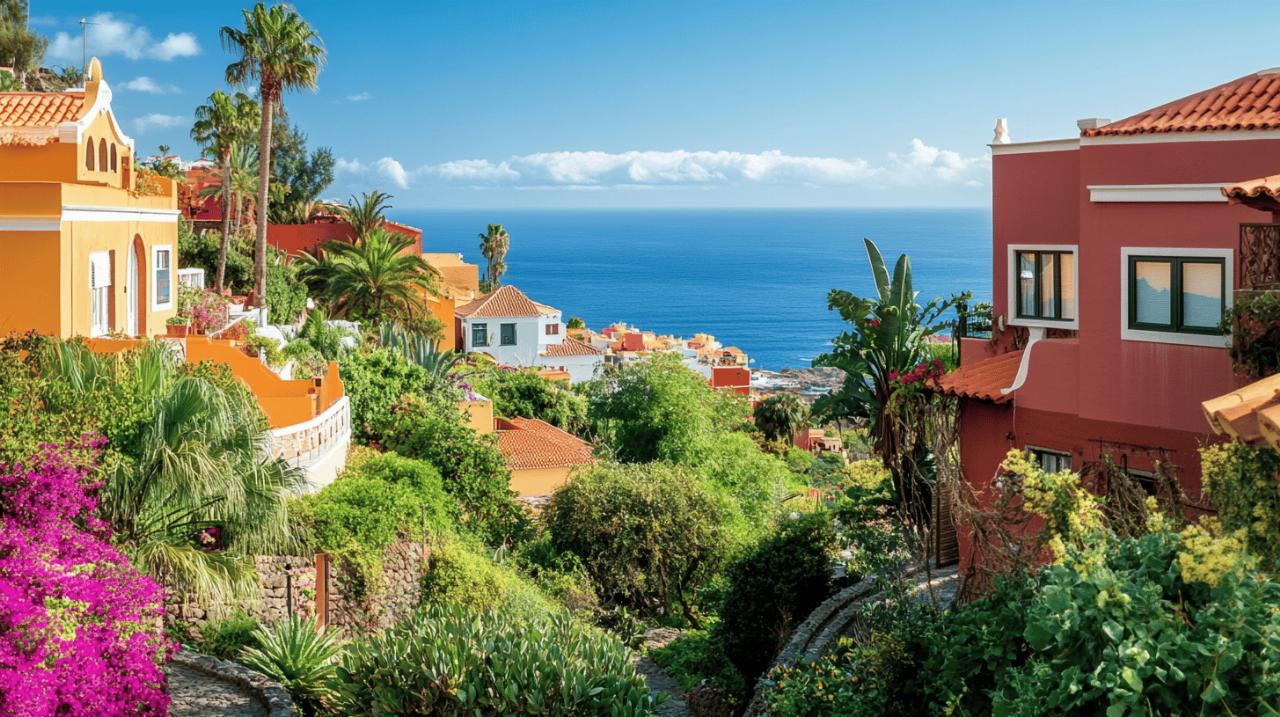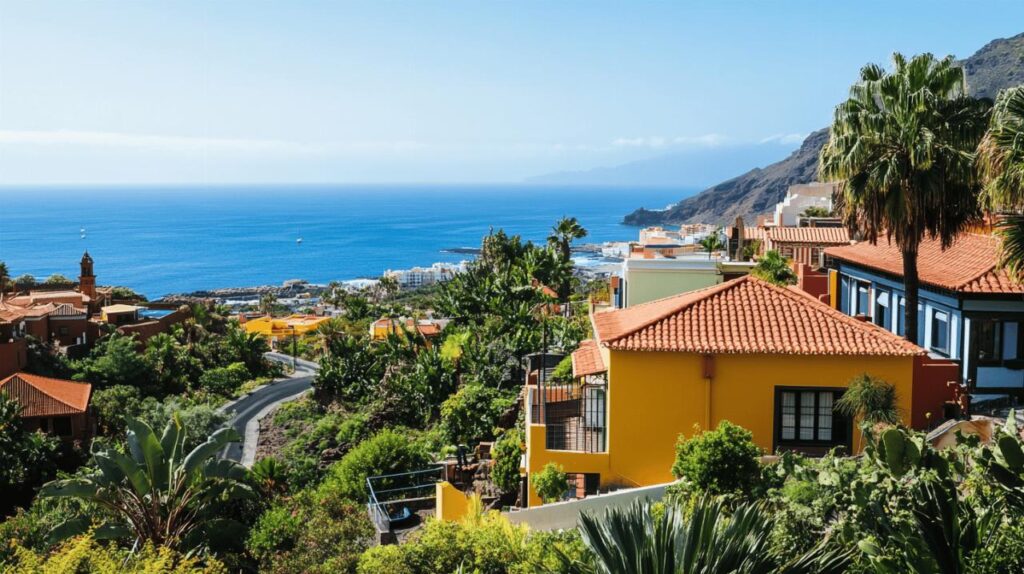The Canary Islands stand as a beacon for property investors seeking sunshine, stable returns, and significant tax advantages. This Spanish archipelago, bathed in year-round warm weather and blessed with diverse landscapes, has steadily grown as a premier destination for both lifestyle buyers and savvy investors looking to expand their portfolios. With tourism numbers exceeding pre-pandemic levels and property values showing consistent growth, the archipelago presents compelling opportunities for those considering international real estate investment.
Property investment landscape across the archipelago
The real estate market in the Canary Islands has demonstrated remarkable resilience and growth in recent years. Property prices have increased by an impressive 47% over the past five years, with experts forecasting an additional 8-12% rise throughout 2025. This growth trajectory makes the Canary Island property market particularly attractive compared to other European destinations. Currently, property prices range from €2,800 to €3,300 per square meter, offering various entry points for different investment budgets.
Current market trends and property valuations
The property landscape across the archipelago is experiencing a significant transformation driven by several factors. Tourism recovery has exceeded expectations, with visitor numbers reaching 16 million in 2024, surpassing the pre-pandemic figure of 15.1 million in 2019. This tourism boom directly fuels rental demand, particularly in the major islands of Tenerife, Gran Canaria, and Lanzarote. The annual property price growth reached an impressive 11-16% in 2024, indicating a robust market with strong fundamentals.
Investment opportunities span across various property types, from apartments ranging between €150,000 for studios to €800,000 for luxury penthouses. For those seeking more space, detached houses and townhouses are available from €250,000 to €2 million, while building plots range from €100,000 for inland locations to over €500,000 for prime coastal sites. The demand for luxury properties with ocean views and premium amenities continues to rise, particularly among international buyers who comprise approximately 70% of the market.
Tax benefits and special economic zone advantages
One of the most compelling aspects of investing in Canary Islands real estate is the favorable tax environment. The islands offer significant tax advantages compared to mainland Spain, including lower property taxes and reduced VAT rates. New developments are subject to a 7% Canary Islands General Indirect Tax, while resale properties incur a 6.5% Property Transfer Tax—both notably lower than their mainland equivalents.
The archipelago also operates as a Special Economic Zone, providing substantial tax incentives for businesses and investors. These benefits extend to eco-friendly property developments, which receive additional tax breaks, particularly in Lanzarote and La Palma. For foreign investors, financing options remain accessible, with Spanish banks typically offering mortgages covering 70-80% of property value to non-residents, usually requiring around a 30% down payment. The total additional costs associated with property purchases, including taxes, legal fees, and notary charges, typically add 10-12% to the purchase price—a figure that remains competitive within the European market.
Ideal locations for property purchase
 When considering property investment in the Canary Islands, location plays a crucial role in determining both rental yields and potential for capital appreciation. Each island offers distinct advantages and investment profiles, catering to different investor preferences and objectives. Understanding these differences can help investors make informed decisions aligned with their financial goals and risk tolerance.
When considering property investment in the Canary Islands, location plays a crucial role in determining both rental yields and potential for capital appreciation. Each island offers distinct advantages and investment profiles, catering to different investor preferences and objectives. Understanding these differences can help investors make informed decisions aligned with their financial goals and risk tolerance.
Comparing popular islands for investment potential
Tenerife remains the largest and most developed island, offering diverse investment opportunities. Costa Adeje, Los Cristianos, and El Médano stand out as prime areas with strong rental demand and capital growth potential. These locations benefit from excellent tourist infrastructure, beautiful beaches, and comprehensive amenities. Similarly, Gran Canaria presents attractive options in Las Palmas, Maspalomas, and Puerto Rico, combining urban conveniences with tourist appeal.
Lanzarote has carved a niche in eco-tourism and luxury properties, attracting environmentally conscious investors and high-net-worth individuals seeking distinctive architectural styles that blend with the volcanic landscape. Meanwhile, Fuerteventura appeals to those looking for beachside lifestyle properties with growth potential, featuring expansive beaches and water sports opportunities that draw a steady stream of tourists. Rental yields vary across these islands, with long-term rentals typically delivering 4-7% returns, while short-term vacation rentals in prime tourist areas can exceed 7%, making them particularly attractive for income-focused investors.
Emerging areas with growth prospects
While established locations continue to perform well, savvy investors are increasingly looking toward emerging areas that offer better value and stronger growth potential. La Palma, known for its lush landscapes and eco-friendly developments, presents opportunities at lower entry points with significant appreciation potential. Similarly, El Hierro, the smallest of the main islands, is gaining attention for its unspoiled nature and sustainable tourism initiatives, potentially offering first-mover advantages to early investors.
Parts of Fuerteventura that are currently undergoing infrastructure development represent another frontier for growth-oriented investors. These areas offer affordability coupled with future appreciation as accessibility and amenities improve. The growing digital nomad community is also creating new opportunities in previously overlooked locations, as remote workers seek authentic experiences and stable accommodations, driving demand for long-term rentals beyond traditional tourist zones. Investors considering these emerging areas should factor in the longer investment horizon typically required to realise full potential, balanced against the advantage of lower entry costs.
The property purchase process in the Canary Islands typically takes 8-12 weeks, requiring careful planning and professional guidance. Working with reputable local real estate agents and legal advisors is essential, particularly for navigating the new regulations for short-term rentals that came into effect in July 2025. These regulations include mandatory registration requirements that impact investment strategies focused on the vacation rental market. For those considering property management, numerous services are available to handle maintenance and tenant relations, making it feasible to invest from abroad while ensuring properties remain well-maintained and profitable.





